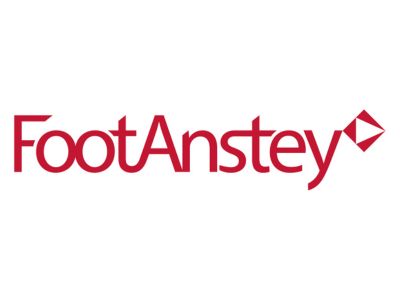Modern athletes are brands. Just like traditional brands, they generate revenue through their image, licensing their identity, sponsoring products, and producing their own branded ranges. Through the power of their brand, athletes can continue to generate revenue, whether for themselves or the products they sponsor, long after their professional career has drawn to a close.
By showing how a name or image can elevate sales through endorsement or how a famous face can launch a new product line, the professional athlete is an example of modern brands in practice.
Despite this, many athletes do not take the steps they need to protect their brand through the trademark system. Try conducting a search of the UKIPO register for registrations protecting the name of an athlete, and chances are you will find nothing registered. We searched the register for registrations covering the name (first name, surname) of each member of the current England Men’s and Women’s football squad and found just four out of 47 had engaged with the system. Given the values at stake and the potential for sponsorship and endorsement deals to be invalid without the benefit of a registration, this is particularly stark.
The recent COLD PALMER application, filed by a company run by England and Chelsea squad member Cole Palmer to protect his nickname, has helped raise the profile of this issue. In the broad scope of its specification, the application hints at the possibilities for revenue generation Palmer may explore (from incense to clothing, cakes, and even data communication services) (UK application number 4129017).
In addition to filing an application to protect his nickname, Palmer has also sought to protect his given name, i.e., COLE PALMER (application 4129004). Both applications originally covered a range of alcoholic beverages, but the COLD PALMER application was seemingly opposed by Château Palmer, a luxury wine producer based in France.
The apparent disconnect between a luxury wine producer and a Premier League footballer may be what has contributed to capturing the public’s and mainstream media’s attention on this matter. As such, it is a reminder of the general lack of awareness of the power of registered trademarks across the wider public and business community. It is also a reminder of the power of brand, whether that brand is linked to a footballer or is a more traditional “brand“ – a name with a reputation can elevate a product or service line across a broad spectrum of industries.
According to the public register, Palmer has amended the specification for both of his filings to explicitly exclude wine, while retaining cover for a broad range of other items.
Whilst Palmer has taken steps to protect his brand, perhaps the most surprising element of this case is that more professional athletes do not do so. It seems that more awareness is needed across the sports sector as to the necessity for brand protection.
Of course, registrations are just the beginning of a robust IP strategy. Without a registration (or other right to claim ownership on a name or image), many existing sponsorship or endorsement deals may be vulnerable. It is crucial that the registration and commercialization strategies are aligned and that these are ultimately reflected in the agreements athletes enter into.
Whilst enforceability issues plague attempts to license unregistered rights across all industries, the risk in the sports sector, where often there is no product for the athlete to monetize (the player and their image is the product), is even greater.
This is likely to be exacerbated as industries continue to explore revenue generation through digital content and the metaverse, whilst protecting against threats such as cloning from AI. In this environment, there is a potential perfect storm for athletes looking to monetize assets that don’t exist (intangible unregistered rights) in respect of goods and services that also don’t have a physical existence (e.g., digital likenesses in a football game, metaverse, or preventing an AI clone falsely endorsing a product).
Whilst there is a rich history of athletes doing the right thing and protecting their IP, this is not the norm. As emerging tech creates new challenges and opportunities, it is time the industry got to grips with IP.

Written by Ben Travers
Partner, Foot Anstey
You may also like…
Winter Intellectual Property Conference 2025: a review
As a proud member of the Editorial Board of The Trademark Lawyer, I could not decline the invitation of the...
Jurisdiction in trademark rectification to vest with the High Court, appellate to the Registry
In a recent judgment in the matter of PAS Agro Foods v. KRBL Limited (2025:KER:79840), the Kerala High Court addressed...
Takeaways from J.M. Smucker Company v. Trader Joe’s Company for brand owners regarding trade dress enforcement
Dupes and generic brands, which were once seen as inferior alternatives to name-brand products, have become more...
Contact us to write for out Newsletter














